Medical Aid Terms You Need to Know


Medical aid has fast become a necessity, not a luxury. Admittedly, though, the jargon and terminology
can oftentimes feel overwhelming. Here, we demystify some of the terms you need to know to feel
confident when it comes to your medical aid.
1. Principal Member: Any person duly admitted to the membership of the Society and who is the policy
holder.
2. Beneficiaries and dependents: any individual who belongs to a Principal Member’s health plan, and
whose medical aid fees are covered by the Principal Member. For example, if a Principal Member
adds their children to their medical aid plan, their children are the dependents on that plan.
Individuals who qualify as dependents are spouses, children (including stepchildren, adopted
children), parents of the Principal Member.
3. In-network: this refers to the healthcare providers, hospitals, and specialists within the chosen
medical aid provider’s approved network of partners, and thus whom you can visit and claim for from
medical aid, significantly reducing your out-of-pocket costs.
4. Out-of-network: this refers to the healthcare providers, hospitals, and specialists that are outside of
the chosen medical aid provider’s approved network of partners. In visiting these, you will likely incur
higher out-of-pocket costs in paying cash to then claim back later or possibly not be able to claim
from medical aid at all.
5. Health plans: options offered by the medical aid provider in terms of the coverage and benefits
offered to the Member.
6. Benefit Schedule: A table that specifies the extent and amount of coverage provided for each health
plan.
7. Coverage: What your health plan affords or offers you in terms of benefits and support, including
number of GP visits, specialist visits, preventive care, hospitalisation, prescription drugs, mental
health services, and maternity care. This varies per health plan and even per medical aid provider.
8. Benefits: are the medical services, procedures and/or medication that Members are covered for in
return for monthly medical aid subscriptions. The benefits received are dependent on the health plan
you have chosen. Some health plans offer comprehensive benefits (both-day-today and in-hospital
cover), while others offer only outpatient benefits.
9. Benefit Limit: is the maximum monetary or numeric value available annually for spending attached
to your benefits.
10. In-patient versus out-patient care:
a. In-patient care refers to medical treatment and services that are provided to a patient who
has been admitted to a hospital, or other equivalent healthcare facility and requiring an
over-night stay or more days in the facility.
b. Outpatient care, also known as ambulatory care, refers to medical services and treatments
that are provided to patients who do not require an overnight stay in a hospital or
healthcare facility. Instead, patients receive care on an appointment basis and return home
the same day.
11. Co-payment: a portion of the bill for which the Member is responsible. Some options have co-
payments for certain procedures meaning that the Member needs to pay the designated amount
when receiving treatment for that procedure. The term co-payment can also be used to describe the
Member’s portion of the bill if the scheme/option only covers treatment at a certain % and the
provider charges above that %.
12. Waiting period: the period in which a Member is not entitled to claim any benefits. Delayed period is
normally applied on new Members joining a medical aid and further imposed on certain benefits like
specialised dentistry, chronic conditions etc.
13. Pre-existing condition: Any ailment, illness, or condition that, in the opinion of a medical advisor
appointed by the Fund and with reasonable medical certainty, existed at the time of the Member
joining the Fund. The pre-existing condition waiting period applies to new Members.
14. Chronic Condition: illness or disease that typically requires on-going medical attention and care,
Often, lifelong with limitation in function.
15. Exclusions: are procedures and treatments which medical aids do not cover or pay for. Examples are
self-inflicted injuries and cosmetic surgery.
Getting to better understand some of these key terms can help you on your way to better appreciate
what your medical aid provider can do for you as a true partner for your health and wellbeing. Start today
and find the right partner for your health, happiness and wellbeing.






